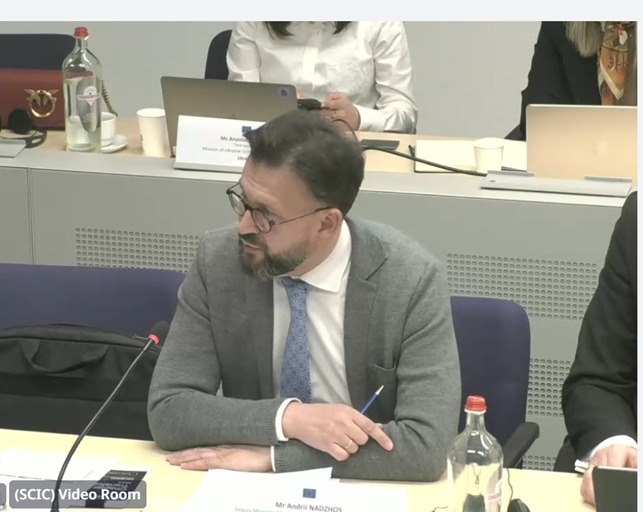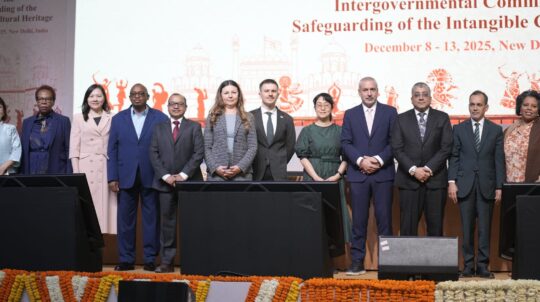The Ministry of Culture and Strategic Communications of Ukraine participated in a key bilateral meeting with European Commission representatives as part of the process to align Ukrainian legislation with EU law under Negotiation Chapter 10: “Digital Transformation and Media”. These discussions are an important part of Ukraine’s EU membership negotiations.
Andrii Nadzhos, Deputy Minister for European Integration at the Ministry of Culture and Strategic Communications of Ukraine, who represented the Ministry, mentioned that despite the war, Ukraine is working to align its media legislation with European standards. Significant progress has been made in meeting key EU directives, including the Audiovisual Media Services Directive (AVMSD) and the European Media Freedom Act (EMFA).

He also shared an overview of the current state of Ukraine’s media sector and the challenges it faces, particularly its reliance on international support and the ongoing fight against russian disinformation. Andrii Nadzhos specifically mentioned the involvement of experts in the “Shield of Democracy” initiative, which aims to combat disinformation and foreign influence that threaten Ukraine’s stability and development.
“Despite the challenges, the Ministry of Culture and Strategic Communications of Ukraine remains dedicated to integrating Ukraine’s media sector into European standards. It is also crucial to strengthen the resilience of our media space, ensuring it stays robust and protected, even during wartime and in the face of external threats”, said the Deputy Minister.
Andrii Nadzhos also outlined plans for revitalizing Ukraine’s media landscape after the war, focusing on financial support, rebuilding infrastructure, and promoting media literacy. The main goal is to create a transparent, independent, and resilient media environment that reflects European values.
During the sessions, Ukrainian experts presented the progress made in aligning national legislation with EU law and discussed the next steps in key areas such as electronic communications, digital services, data, trust in digital technologies, cybersecurity, media, and artificial intelligence, among others.
EU legislation in this area covers regulations for electronic communications, information environment services — including e-commerce and conditional access services — and audiovisual services. In the field of electronic communications, the EU aims to remove barriers that hinder the efficient functioning of telecommunications services and networks, promote competition, and protect consumer interests, particularly by ensuring access to modern services.

